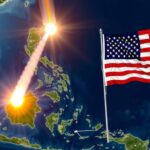Politics
AFGHANISTAN, ASIA, BIDEN, CHINA, DEFENSE, DONALD TRUMP, FERDINAND MARCOS JR, INTERNATIONAL RELATIONS, JOE BIDEN, KAN, KANISHKA GANGOPADHYAY, MANILA, MARCOS, MEXICO, MILITARY, MUTUAL DEFENSE TREATY, NATO, NEWSNATION, NORTH AMERICA, PHILIPPINES, SOUTH CHINA SEA DISPUTE, TALIBAN, U. S, US, WORLD
Sophia Klein
Afghan Nationals Resettle in the U.S. After Visa Processing in the Philippines
Almost 200 Afghans have relocated to the U.S. after their special immigration visas were processed in the Philippines. Their departure followed a collaboration between the U.S. and Philippine governments as part of a resettlement initiative for Afghan nationals who aided U.S. forces. The Philippine government provided temporary accommodation in light of security threats posed by the Taliban, further strengthening international alliances amid rising tensions in the region.
Nearly 200 Afghan nationals recently traveled to the United States after their special immigration visas were processed in the Philippines. This initiative, supported by an agreement between the U.S. and the Philippines, involved the Afghans departing in multiple groups on commercial flights following their successful application for U.S. resettlement, as reported by U.S. Embassy spokesperson Kanishka Gangopadhyay. The embassy expressed gratitude to the Philippine government for their cooperation in this significant undertaking.
The group of Afghans, which included several children, initially arrived in the Philippines on January 6. Specific details regarding their numbers and current locations were kept confidential for security reasons as the U.S. government funded their stay in the Philippines. Many of these individuals had worked alongside U.S. forces in Afghanistan or were eligible for special immigration visas but were unable to leave during the chaotic withdrawal in August 2021 as the Taliban regained control of the country.
Following the Taliban’s takeover, Afghan supporters of U.S. efforts faced threats of retaliation. Presidents Joe Biden and Donald Trump have exchanged blame for the disorganized U.S. withdrawal. Previously, President Biden had discussed the resettlement issue with Philippine leader Ferdinand Marcos Jr. during a visit to the U.S. last year. In July, the Philippines consented to temporarily host a U.S. visa processing center despite security concerns regarding Afghan nationals potentially fleeing from Taliban rule.
Philippine officials acknowledged that the temporary accommodation for Afghans was a one-off arrangement. Since his election victory in 2022, President Marcos has strengthened ties with the U.S. through expanded military cooperation under a defense agreement established in 2014, which has evoked apprehension from China. The Marcos administration has also been active in enhancing defense relations with several nations to improve regional security, particularly concerning the disputed South China Sea.
This substantial collaboration aligns with the Biden administration’s goal to reinforce security alliances in the Indo-Pacific region in response to China’s assertive actions in contested waters, which have heightened tensions throughout the area.
This article discusses the resettlement of Afghan nationals in the United States after their visas were processed in the Philippines, highlighting a bilateral agreement between the two nations. The influx of Afghans is tied to their prior contributions to U.S. military efforts during the war in Afghanistan and the risks they now face from a Talibanic regime. The context includes a retrospective look at the chaotic U.S. withdrawal from Afghanistan and the continuing international partnerships being forged in Southeast Asia, particularly in light of regional security concerns regarding China.
In summary, nearly 200 Afghan nationals have successfully relocated to the United States after processing their special immigration visas in the Philippines. This action was part of a significant collaboration between the U.S. and Philippine governments, emphasizing humanitarian support for individuals who played crucial roles during the Afghanistan conflict. As international relations evolve, the Philippines continues to solidify alliances aimed at addressing regional security issues, particularly those stemming from China’s increased assertiveness in the Indo-Pacific.
Original Source: www.newsday.com








Post Comment